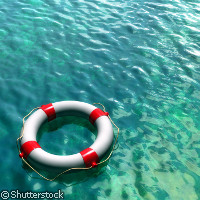Giving emergency relief efforts a boost, the EU way
People recognise that insufficient communication and knowledge transfer between local and foreign bodies can impede humanitarian relief efforts. So a group of researchers has devised a new system that could overcome this problem. The STREAM project, funded by the EU with EUR 2.5 million, has established an IT platform supporting harmonised standards that provide key parties with the information and technologies needed. Regardless whether there is a natural or man-made disaster, relief agencies jump into action to support victims as quickly as possible. But information gaps exist, making it hard for mission planners to determine how to best use the resources they have. The European Commission and the United Nations, among others, have over the years made huge efforts to develop standardised procedures that would give agencies the world over access to various technologies that provide satellite images and maps, for example, to help people in need. But the STREAM project partners have taken things one step further thanks to their innovative IT platform. The standards involved and the information available to people can be accessed from one entry point. This is a huge boon for the entire sector. 'The project has three main objectives,' project leader Professor Hichem Sahli told ICT Results. The first focuses on workflow management. This gives the operation headquarters the means to monitor what is happening and determine the location of the problem. The second targets the creation of a harmonised description of what people are doing, gathering information that can be distributed amongst the various groups active in the field, he explained. The third objective spotlights data archiving and free data access by decision-makers and field workers. 'As things stand, you will often find two organisations working side by side do not talk to each other,' Professor Sahli told ICT Results. 'One may be assessing structural damage to buildings and infrastructure, and the other dealing with the human cost in loss of life and outbreaks of disease,' he added. 'Even if they do talk, the data they are collecting is not made use of by both organisations because they are not coded in the same way and don't have the same meanings, so there is a great deal of duplication of effort,' the STREAM coordinator was quoted as saying. 'So, we are ensuring harmonised data sharing, exchange, transfer and understanding. Anyone who seeks information will be able to retrieve it from the data that is archived and freely available,' he added. STREAM will drive existing systems and processes, not replace them, the project partners said. Relief and government agencies will be able to use the innovative platform as 'an extra resource rather than a form of competition', Professor Sahli remarked. 'From the very start of the project, we looked at what was being used, particularly by international relief bodies, and then made a list of additional requirements,' he said. 'We didn't want to reinvent the emergency aid wheel, just to make it more efficient.' Angola and Lebanon were selected as test sites once the basic system was developed and tested in the lab. The tests focused on the mines that remained following the civil war in Angola and the independence wars before that, as well as the aftermath of the 2006 fighting between Israel and Hezbollah. The STREAM project leader was quoted as saying that the results of the trials are being properly evaluated. STREAM was given a five-month extension past the initial 30 June 2008 deadline. 'We are also putting together a business plan for future exploitation of the system by international aid agencies and those EU bodies which are involved in aid and emergency relief,' he commented.



